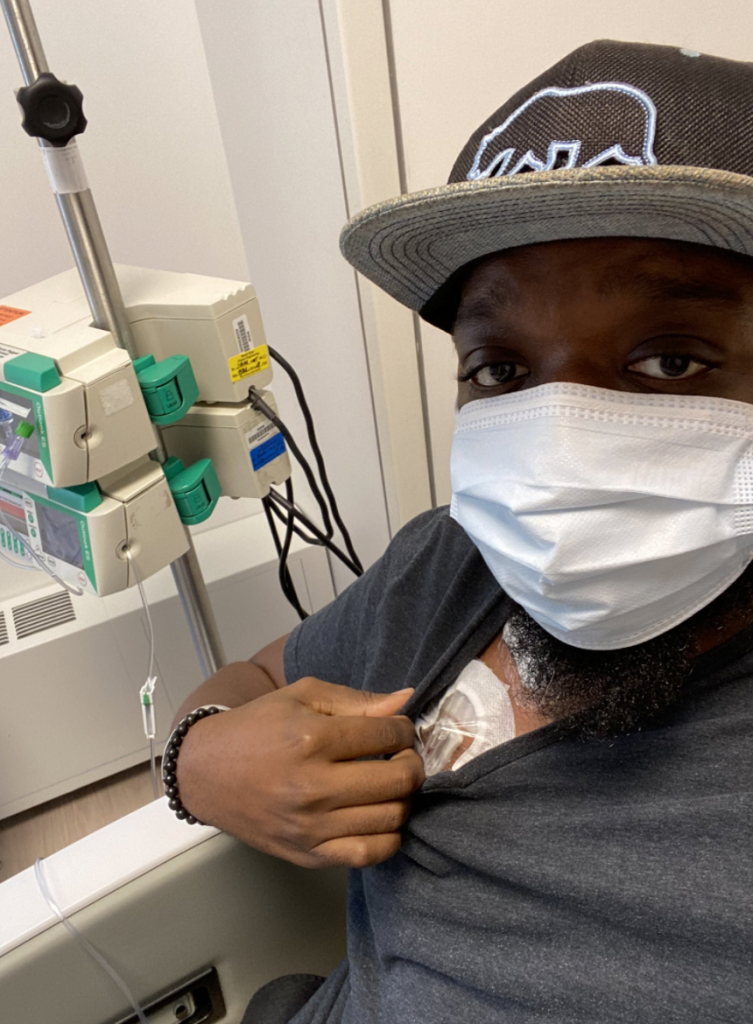James Casey & His Colon Cancer Diagnosis
- Musician James Casey will not appear on the Trey Anastasio Band Tour due to his recent colon cancer diagnosis; he is urging others especially Black people to screen for this disease.
- Casey was diagnosed after experiencing abdominal pain. He was diagnosed with stage 3 colon cancer, then had surgery, and is also undergoing chemotherapy.
- Screening for colon cancer is done via colonoscopy, which looks for precancerous polyps in the colon.
Casey’s Journey to Diagnosis
Casey was diagnosed after experiencing pain in his abdominal area.
In a post to Twitter, Casey writes to fans, “A little over a month ago, I went to the ER with severe abdominal pain that I thought was appendicitis It turned out to be a large tumor that was blocking my colon. While the emergency surgery was successful (and I'm about 90% recovered from that), the tumor was malignant.”
A little over a month ago, I went to the ER with severe abdominal pain that I thought was appendicitis. It turned out to be a large tumor that was blocking my colon. While the emergency surgery was successful (and I’m about 90% recovered from that), the tumor was malignant.
— James Casey (@JamesCaseySax) September 15, 2021
He continues, “Cancer, stage 3. While the great team at Mt Sinai Beth Israel did a phenomenal job and believe they removed everything, as a precaution, I begin Chemotherapy today.”

Casey also shares why he chose to go public with his diagnosis, writing, “Under normal circumstances (as private as I am) I would have kept this to family and very close friends until it was over. However, I felt I needed to say something publicly for 2 reasons…”
He says, “1) I am entirely too young and healthy to have colon cancer and yet I do. It's the same thing that took Chadwick Boseman and I'm definitely younger than he was. Everyone should get tested, but especially if you are a Black Man.”
Casey continues, “We are 40% more likely to get this particular type of cancer…so much so that being African American is considered a warning sign for it. If you're 35+ please consider getting checked, and make sure to pay attention to your digestive health.”
He says, “2) I won't be able to do the TAB tour that starts this weekend. I'm extremely disappointed, but my good friend and amazing saxophonist Cheme (@CochemeaG) will be there in my place as I recover. I want to reiterate that the treatment is a preventative measure and the docs believe my prognosis is great. I'm thanking you in advance for your prayers, thoughts, vibes and whatever else you're trying to send to help me get better!”
Chemo for Stage 3 Colon Cancer
Preventative Cancer Treatments
Like Casey, some people may opt for additional treatments like preventative chemotherapy even after the successful treatment of the cancer with surgery. The goal is to prevent the cancer from returning.
Dr. Paul Oberstein, chief of gastrointestinal oncology at NYU’s Perlmutter Cancer Center, says most Stage 3 colon cancer patients have 1-2 chemotherapy drugs administered for about 3-6 months following surgery. The drugs are given on a cycle of about every 2-3 weeks. “Once a person completes that chemotherapy, we expect that they’re done,” Dr. Oberstein says. After chemotherapy, the patient will undergo surveillance to monitor for signs that the cancer has returned.
For a variety of reasons, some people may choose to go a step further, beyond the required treatment. For instance, if someone has a family history of breast cancer, they may opt to have a preventative mastectomy to severely lower their risk of developing the disease as well.
Quite famously, Angelina Jolie had a risk-reducing breast surgery because her mom passed from cancer and Jolie’s genetic makeup put her at a higher risk for developing the disease, too.
Dating After Preventative Cancer Surgery Meet Pre-Vivor Erika Stallings
Screening for Colon Cancer
Colon cancer is screened for via colonoscopy which looks for polyps small white, potentially precancerous growths in the colon. The presence of polyps can lead to cancer.
While experts don't currently know exactly what causes colon cancer, they do point to certain risk factors. Risk factors for this disease may include one's diet, smoking tobacco, and drinking alcohol. Having a family history of colorectal cancer can also increase the risk.
People with an average risk of developing colon cancer meaning, no history of colon cancer in the family and no history of Lynch syndrome (an inherited syndrome that increases your colon cancer risk) should begin getting colonoscopies at age 45. People with a family history of colon cancer should begin screening before 45.
How Does a Colon Polyp Turn into Cancer?
Learn more about SurvivorNet's rigorous medical review process.


